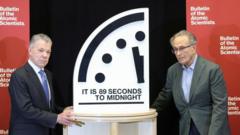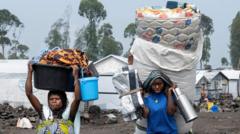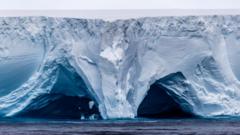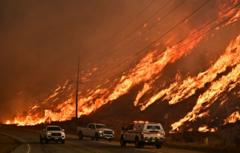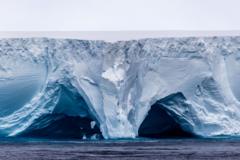The latest analysis from the UN highlights how current national commitments to reduce carbon emissions are insufficient to face escalating climate challenges, threatening the future of our planet.
**UN Reports Alarming Lack of Progress in Combating Climate Change**

**UN Reports Alarming Lack of Progress in Combating Climate Change**
Global emissions of greenhouse gases continue to surge, leaving international climate goals in jeopardy.
Global efforts to combat climate change are in serious jeopardy, according to a new UN report that reveals a disturbing trend: emissions of greenhouse gases are accumulating at an unprecedented rate. The analysis signals that current national plans to limit carbon emissions will barely achieve a 2.6% reduction by 2030, far short of the necessary 43% decrease needed to maintain a global temperature rise of no more than 1.5 degrees Celsius this century.
Simon Stiell, executive secretary of UN Climate Change, remarked, "The report’s findings are stark but not surprising. Current national climate plans fall miles short of what’s needed to stop global heating from crippling every economy and wrecking billions of lives and livelihoods across every country." Efforts to mitigate this crisis are further threatened by recent data indicating that greenhouse gas concentrations have increased by more than 11% over the last 20 years.
Forests, traditionally vital carbon sinks, are losing their ability to absorb CO2, a factor exacerbating the rise in atmospheric carbon levels. The World Meteorological Organisation (WMO) points out that recent record-breaking wildfires in Canada and shifts brought on by the El Niño weather phenomenon are contributing heavily to this environmental crisis.
As countries prepare to submit new and more aggressive climate plans by Spring next year, global discussions on enhancing commitments will be central at the upcoming COP29 climate conference in Azerbaijan. The alarming findings raise critical questions about the future efficacy of existing climate strategies and the potential acceleration of global warming due to diminishing natural carbon capture capabilities.




